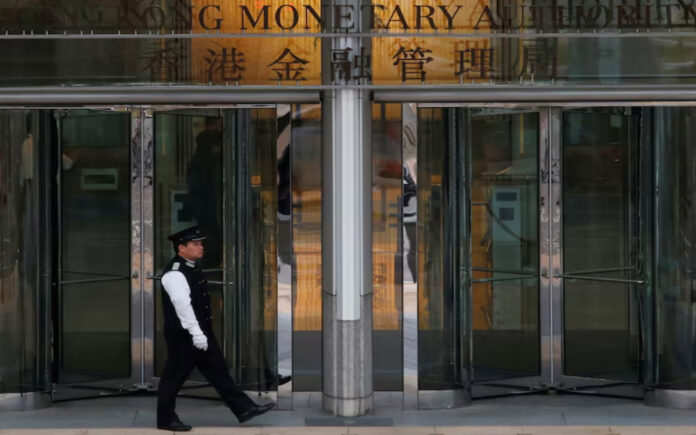Hong Kong: Hong Kong’s interbank lending rates plummeted across the board on Friday, marking one of the steepest weekly declines in decades, as capital surged into the city. The move comes amid mounting concerns over U.S. dollar assets and persistent economic weakness in mainland China.
Liquidity in the financial hub has been bolstered by a combination of factors, including cash injections by the Hong Kong Monetary Authority (HKMA) and a wave of upcoming initial public offerings (IPOs) in the local equity market.
The overnight Hong Kong Interbank Offered Rate (HIBOR), a critical indicator of market liquidity, sank to 0.09786%—its lowest level in nearly three years. The drop also marked its sharpest weekly fall since at least 2006, plunging by 4.2 percentage points.
“Investors are converting dollar assets into local currencies, including Hong Kong dollar, pushing down interest rates,” said Andrew Xia, economist at Shangshan Capital Group. He added that capital flight from China is also playing a role. “The mainland economy is in bad shape, and some domestic investors worry about the trade war’s impact,” Xia noted, while also citing enthusiasm around Hong Kong’s IPO activity.
Also Read | IAG Places Major Order for 71 Long-Haul Aircraft from Airbus and Boeing
The influx of capital has been further accelerated by interventions from the HKMA to maintain the Hong Kong dollar’s peg to the U.S. dollar. These operations, aimed at managing currency stability, inadvertently increase the supply of Hong Kong dollars in the system, putting downward pressure on interbank rates and weakening the local currency.
“There have been strong inflows into Hong Kong stocks, both from mainland investors, and global funds in expectation of a potential U.S. rate cut in the second half,” said Kimmy Tong, global market & FX strategist at Everbright Securities International.
Also Read | Trump Administration Imposes Sanctions on Chinese Companies for Buying Iranian Oil
Looking ahead, the future trajectory of HIBOR will likely hinge on the outcome of U.S.-China trade negotiations expected over the weekend. “If the talks are not going very smoothly, maybe the money will keep going into the China and Hong Kong market,” Tong said.
The sharp decline in borrowing costs and the swelling liquidity are reshaping Hong Kong’s financial landscape at a pivotal time, positioning the city as a magnet for capital amid global economic realignments.



